SA Supreme Court hears evidence from prisoners who say Dieter Pfennig confessed to murdering Louise Bell through bizarre story
A NIGERIAN cult leader claims Louise Bell’s alleged killer Dieter Pfennig confessed to him — both verbally and through a bizarre story — but later adopted a “cocky, self-defending” stance.
SA News
Don't miss out on the headlines from SA News. Followed categories will be added to My News.
A NIGERIAN cult leader claims Louise Bell’s alleged killer confessed to him — both verbally and through a bizarre story — but later adopted a “cocky, self-defending” stance.
On Thursday, convicted fraudster Stephen Ogho Akpata told the Supreme Court of the jailhouse “friendship, rapport and confidence” he once shared with Dieter Pfennig.
He claimed the former teacher admitted killing Louise because she “wouldn’t co-operate” and asked if God could forgive “someone who’s done evil things, like me”.
Akpata told the court Pfennig had regularly sought his advice on a manuscript he was writing about “a girl and a warrior who wanted to save the girl”.
“Pfennig said he wanted to set it in an African setting because Hackham West used to be like an African village when he lived there,” he said.
“He wanted to know African words for ‘a girl who has not known a man’ and ‘warrior’ and ‘village’.
“(In the story) the girl died because she would not go with the warrior (but) it did not say how she died or where she ended up ... (it ended) with mathematical inscriptions.
“Pfennig said ‘this is very important to me’ and I said ‘I know, this is your story’ ... he said ‘nobody else knows’.”
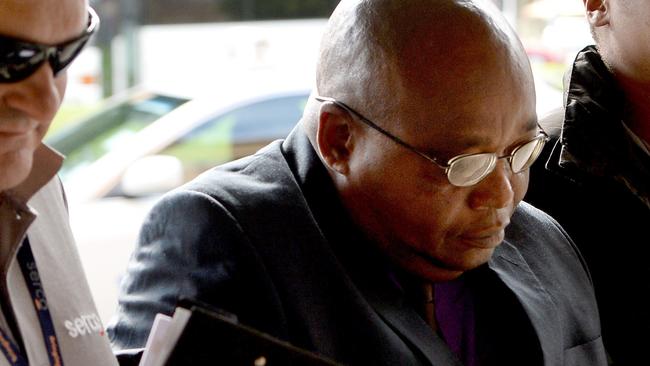
Pfennig, 67, has pleaded not guilty to having abducted Louise, 10, from her Hackham West home on January 4, 1983 and murdering her sometime before March 1 that year.
Prosecutors have alleged a police re-enactment of the abduction proves Louise would have been taken from her bedroom in just 30 seconds.
Louise’s body has never been found, but her pyjama top was located by a neighbour who also received a phone call from the abductor, claiming the girl was “happy with them”.
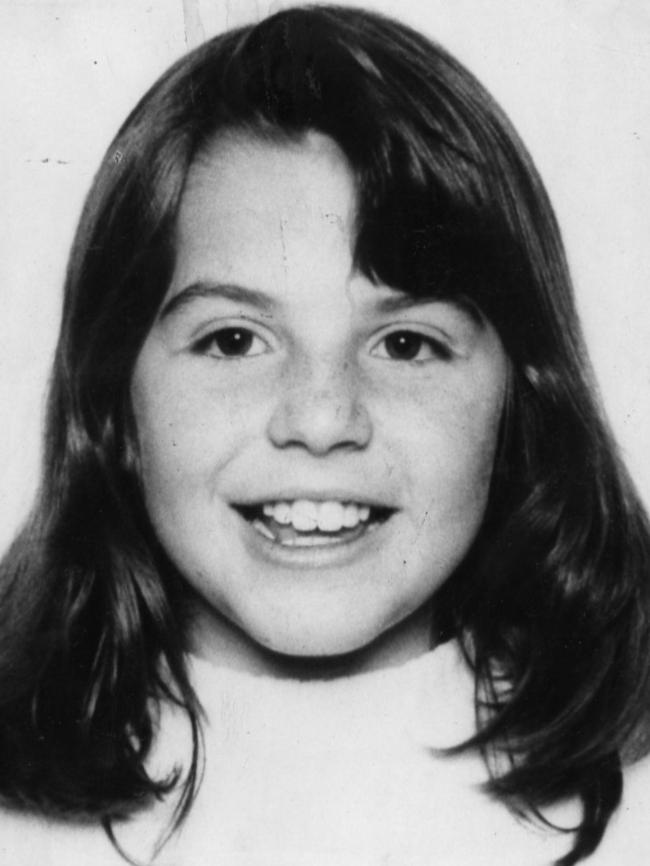
Pfennig is already serving a life sentence for the 1989 murder of Michael Black, 10 — prosecutors claim he has said Michael and Louise are buried together.
Last week, Pfennig failed in his bid to have the trial adjourned for six months so he could mount a $250,000 challenge to key DNA evidence.
On Wednesday, a former prisoner claimed Pfennig confessed to the murder while “stoned and sobbing” during an inmate drug and alcohol binge on Christmas Day 2004.
Grant Algie, QC, for Pfennig, cross-examined the former inmate about his criminal and medical history, claiming he told lies to be the centre of attention.
He suggested the former inmate’s evidence was “a complete fabrication”, to which the man replied: “f--k up, idiot, it’s not”.
“Whatever, homeboy — I think you’re false, too,” he said.
The former inmate emphatically refuted suggestions he wanted attention or to be in court.
“I f--king hate it, you’re all a bunch of clowns in here,” he said.
“You’re not my friends, I hope you all just f--k off.”
In his evidence, Akpata said he served time alongside Pfennig in both Mount Gambier and Port Lincoln Prisons.
The former leader of the Lord Fellowship Inc religious sect entered Australia from Nigeria in 1994 alongside his New Zealand-born wife and their children.
Two years later, he was jailed for 41 counts of fraud dubbed, by prosecutors, “deliberate and prolonged”.
Akpata — author of the book Why Pray? and once pastor to 30 parishioners — defrauded ANZ of $25,000 by writing cheques from his empty New Zealand bank account.
He also deceived WorkCover out of payments worth $17,000 by exaggerating a Stanley knife injury.
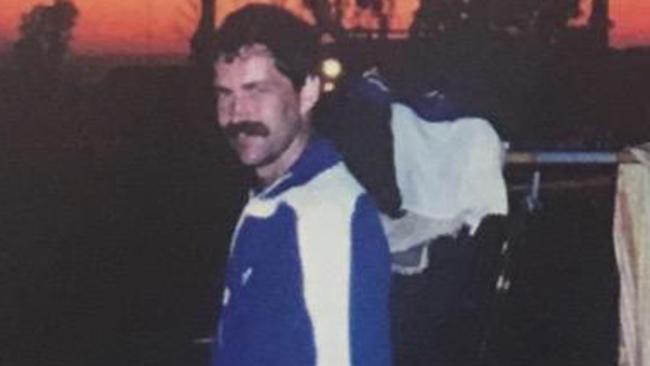
Akpata said he was asked to lead Mount Gambier Prison’s Bible study group shortly after his arrival, and met Pfennig soon after that.
“I remember it very vividly ... he stopped me and he said ‘are you a pastor?’,” he said.
“He said he wanted to come to my Bible group, that he had something he wanted to tell me.”
He said the duo’s first conversations were about the manuscript — at that time it was set in Japan.
“We had a friendship and a rapport ... he came to me in confidentiality,” Akpata said.
“I would ask him to preach and lead Bible group, but he said he couldn’t because there are things in his past that, if he prayed out loud, would make him sound like a hypocrite.”
He said that, during private discussions of those issues, Pfennig became emotional and “teared up” while Akpata hugged him.
Later, Pfennig reacted poorly to a new inmate with the surname Bell.
“I recall him telling me ‘I hate the name Bell’,” Akpata said.
“He said ‘it’s not the people, it’s just the name Bell, it reminds me of the past, it reminds me of a lot of things that are eating my heart and troubling me’.”
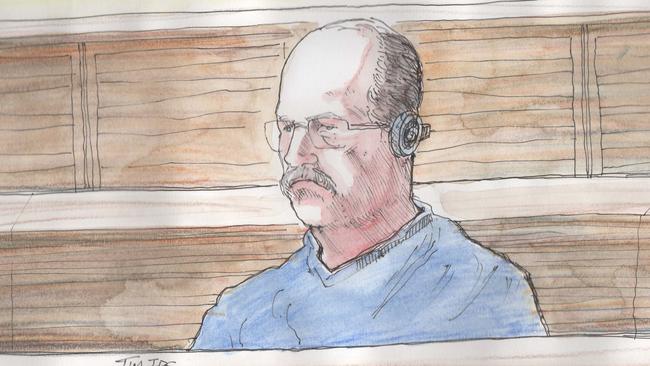
Akpata said that led to another private meeting between the pair, during which Pfennig had physically shaken while speaking.
“Pfennig told me that when he first came to prison he was loathed and hated for his crime, that someone tried to kill him in the work gang at Yatala,” he said.
“He said ‘this is not about that, it’s about what people don’t know ... that’s why I hate the name Bell ... there’s a girl that died, Louise Bell, I know everything about that girl’
“He said ‘I carried her, I know where she is, I tried to calm her down but she wouldn’t co-operate’ ... I think he said ‘that’s when’ or ‘that’s why I killed her’.”
Akpata said that, despite the conversation, he continued to struggle to understand Pfennig’s manuscript, which by that time had shifted its setting to Africa.
“It was just talking about a girl and a warrior who had wanted to save the girl,” he said.
“(It was about) how eventually the girl was killed when she wouldn’t go with the warrior in the contest of the village.”
Akpata said he was subsequently moved to Port Lincoln Prison, and met up with Pfennig again when he, too, was transferred.
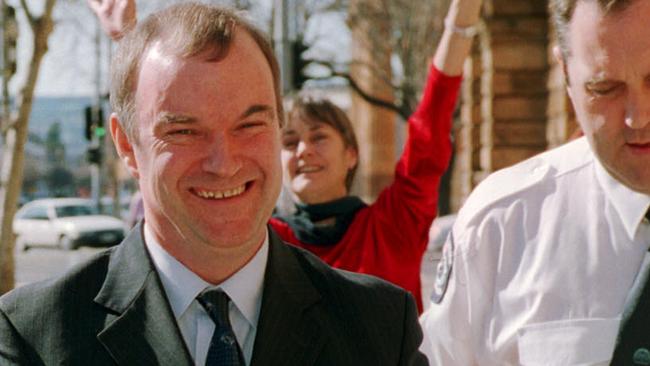
He recalled a Bible group meeting in which Pfennig and Nuriootpa siege gunman Tony Grosser debated whether Christian criminals should seek forgiveness from their victims.
“Grosser made a very grand statement that does he have to show remorse or apologise to SA Police who tried to shoot him and kill him,” he said.
“Pfennig started on something and ended with something else ... he contradicted himself ... he argued for contrition and apologies to people, then against it.
“He’s an expert in every field, no matter what it is ... he never keeps quiet, he’s known for boasting.”
Akpata said Pfennig approached him after the meeting to emphasise that he disagreed with Grosser, at which time the minister again encouraged him to confess.
“He said to me ‘it’s okay for you ... if you knew what I’ve done, you wouldn’t say what you just said’,” he said.
“He said ‘look at me, I’ve been here for nearly over 20 years just for one offence — what do you think is going to happen to me about the rest?
“He said ‘I know I’m not going to get out of prison, why should I bother? Everyone has to deal with God themselves.
“His tone was cocky, arrogant and self-defensive ... quite the opposite of Mount Gambier.”
Akpata said the last time the pair spoke was when he identified the manuscript as being Pfennig’s own story.
“From that moment, he never spoke to me about the book again,” he said.
He said he had neither asked for, received nor been offered any benefit for giving evidence, nor did he expect one.
“Why would I?” he asked.
In cross-examination, Mr Algie questioned Akpata’s honesty given his history of fraud.
Akpata objected to being asked questions about matters to which “I have pleaded guilty and made restitution”.
“I’m not going to put my dignity down just because you are asking me questions,” he said.
Mr Algie suggested Pfennig had never discussed Louise Bell with Akpata.
He further suggested Pfennig’s manuscript was actually about an African child and a Japanese child who communicated telepathically.
Akpata emphatically rejected those suggestions.
“I have no reason to come forward to give evidence and put myself through this trauma (apart from) my social and my conscience’s obligations,” he said.
“You have called me many things but I have never been known to be a false witness to someone.
“If he (Pfennig) disagrees with me, he should take the witness stand and give evidence.”
The trial, before Acting Justice Michael David, continues.


